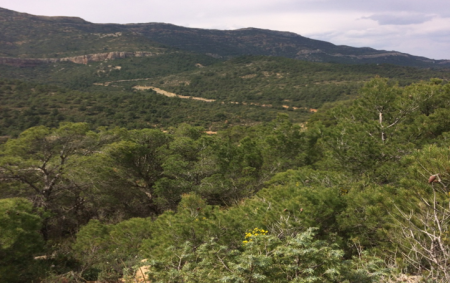
Objective:
The main response of natural Aleppo pine trees to drought has been studied in three sites on the North-western of Tunisia, in order to assess their capacity to adapt to climate change and overcome the water challenge. This research was based on the evaluation of some physiological traits (xylem conductivity, water potential..), the soil moisture, the water content, and the foliar gas exchange (photosynthesis, transpiration, and stomatal conductance).
Context:
At the national level, the market for "zgougou" products from Aleppo pine seeds is booming, therefore, prevention is needed for climate change effects that significantly modify the physiological response of trees and profoundly affect the seed yield. In this context, the purpose of this work is to compare the water status of natural Aleppo pine from different bioclimatic stages, Djebel Zaghouan(DZ), Djebel Mansour (DM) and Djebel El Sarj(DS), based on soil-plant-atmosphere continuity. The experimental approach is based on monitoring soil water behavior, gas exchange, and hydraulic conductivity with climatic variability.
Contacts:
Mokhtar Baraket, moktar.baraket@gmail.com, http://www.inrgref.agrinet.tn/
Nefzi Kaoula, nefzikhaoula@hotmail.com, http://www.inrgref.agrinet.tn/
Jawadi Walid, Jawediwalid650@yahoo.com, http://www.inrgref.agrinet.tn/
Zouheir Nasr, zouheirnasr84@gmail.com, http://www.inrgref.agrinet.tn/
Further information:
Mokhtar BARAKET, Boutheina KRAIMA, Khaoula NEFZI, Sondes FKIRI, Walid JAOUADI, Zouhair NASR (2019): Seasonal variability of gas exchange responses and hydraulic traits of three provenances of pinus halepensis mill. Proceedings of the Biennial International Symposium”Forest and Sustainable Development” 8 th Edition, 25th -27th of October 2018, Brașov, Romania Wood Industry.
https://silvic.unitbv.ro/images/conferinte/fsd/proceedings/15.-Mokhtar-et-al.---ID-179.pdf